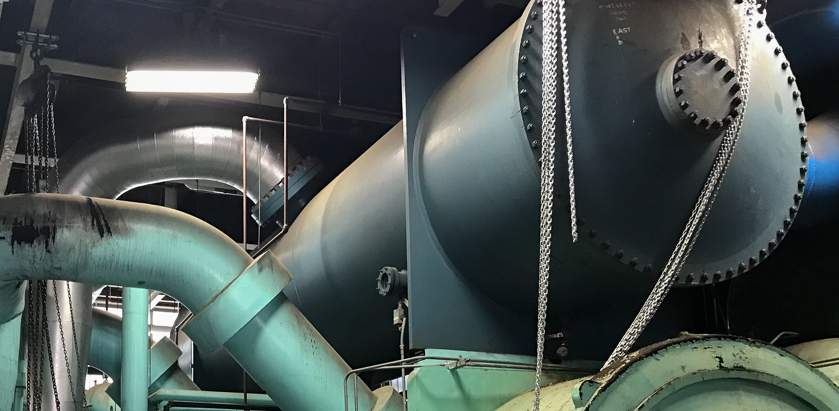UW–Madison recognized for its water- and energy-saving initiatives
The University of Wisconsin–Madison has received recognition for cutting-edge water and energy saving initiatives at the Charter Street Heating and Cooling Plant in the 2020 Sustainable Campus Index.
A publication from the Association for the Advancement of Sustainability in Higher Education, the Sustainable Campus Index highlights innovative and high-impact initiatives from colleges and universities that submitted a Sustainability Tracking, Assessment and Rating System (STARS) report in the most recent calendar year. The campus heating and cooling initiatives were submitted as part of the university’s first STARS report, for which UW–Madison merited a Silver rating.
The heating and cooling plant improvements stem from an improved cleaning system for heat exchangers covering over 50,000 tons of the campus’s central plant chillers.
“Maintaining clean heat exchangers year-round has reduced energy and cooling costs by 8 to 12 percent,” says Jeff Pollei, director of utilities and energy management. “In addition, we removed chlorine from our lake water supply process cooling system,” Pollei says, which now allows over 70 million gallons of treated water per year to be diverted from the sanitary sewer back to the lake.
In the future, permit revisions could help keep nearly 100 million gallons of water per year out of the sanitary sewer. Excess water in the sewer system has to be cleaned and processed by the municipal sewer district, an energy-intensive process.
The improvements at the Charter Street Heating and Cooling Plant reflect the university’s ongoing dedication to institutional sustainability. In 2019, Chancellor Rebecca Blank signed the Second Nature Resilience Commitment, which will help UW–Madison mitigate and prepare for the impacts of climate change.
In addition, Provost Karl Scholz and Vice Chancellor for Finance and Administration Laurent Heller established the Sustainability Advisory Council, which held its first meeting in October. The SAC will generate a set of prioritized recommendations to help drive sustainability progress at UW–Madison in the coming years.




